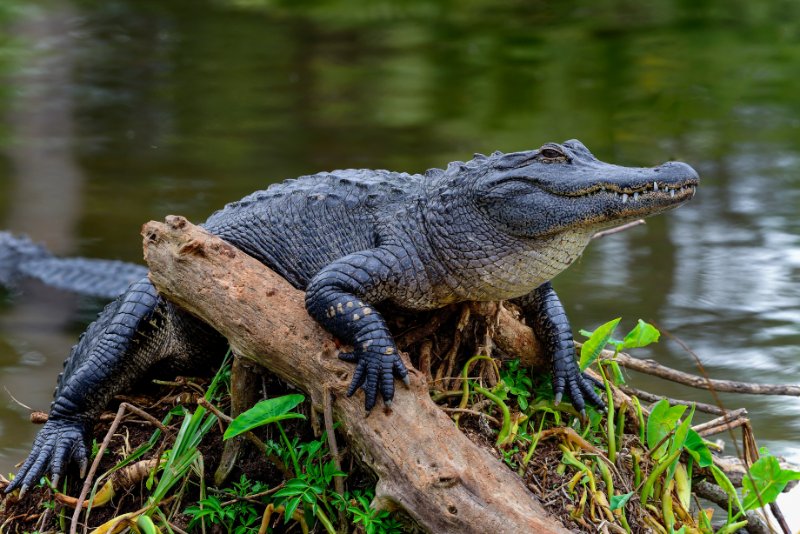“Diving into the Depths: Unveiling the World’s Largest Alligator”.
Set your sights to the sun-soaked marshes of Florida or the humid bayous of Louisiana as we embark on a journey to unearth the world’s largest alligator. With just two species in existence, the American alligator stands out as the heftier of the pair, effortlessly out-sizing its Chinese counterpart.
Gator Country: Spotting the Largest Alligator
Alligators versus Crocodiles
Although the Sunshine State is home to both alligators and crocodiles, their identities often get tangled in the narrative. It’s essential to note that alligators, with their impressive average size of 13 feet and over 1,000 pounds, differ from their seemingly similar looking relatives, the crocodiles. Male crocodiles typically grow larger, reaching up to 16 feet.
The record-holding champ among alligators resides in Florida, with an imposing 17 feet 5 inches in length. A similarly sized gator was reported in Texas, but that claim remains unofficial. Regardless of their location or size, alligators generally avoid confrontation with humans, contrary to their aggressive cousins, the crocodiles.
See Related: Exploring the Habitat of Reptiles: Where Do They Live?
When Alligators Attack
The Misunderstood Predators
While alligators can move swiftly over short distances, they rarely attack humans on land. Most reported attacks occur in water, where unsuspecting swimmers or waders venture too close. However, these unfortunate incidents typically involve alligators closer to the 11 to 12-foot range, not necessarily the largest of the species.
Pop Culture’s Largest Alligator
- Alligator and its sequel, Alligator 2 -The Mutation, featured giant alligators from Chicago’s sewers.
- Lake Placid popularized the concept of enormous, man-eating alligators.
- Friendly alligator characters like Wally Gator and Al the Gator brought a lighter side to the creature’s image.
However, the largest alligator you’re likely to see without leaving your couch is parked in front of a roadside attraction in Titusville, Florida. “Swampy”, a delightfully unrealistic 200-foot alligator, greets visitors with his giant, open-mouthed grin.
A Related Species: The Alligator Gar
However, alligators aren’t the only creatures that will make your jaw drop. Meet the alligator gar, a freshwater fish with alligator-like teeth, and an aggressive attitude. On record, the largest alligator gar weighed in at 350 pounds, though lengths of up to 10 feet are not unheard of.
Related links:
Stay with us as we dive deeper into the world of these fascinating reptiles—amazingly complex creatures that make our world more wild, more magical, and more diverse.
Set your sights on adventure and prepare to unveil the world’s largest alligator.
“`

